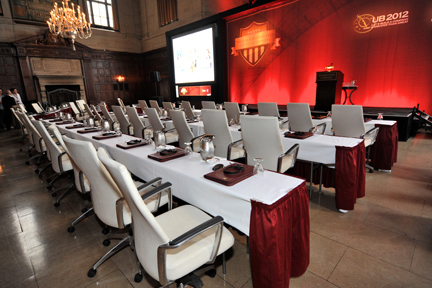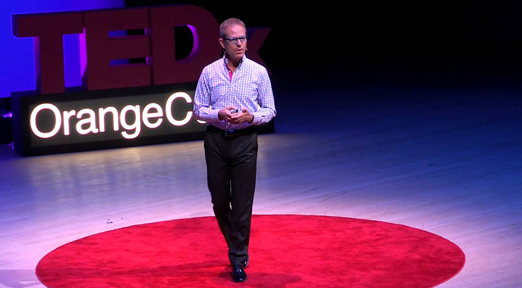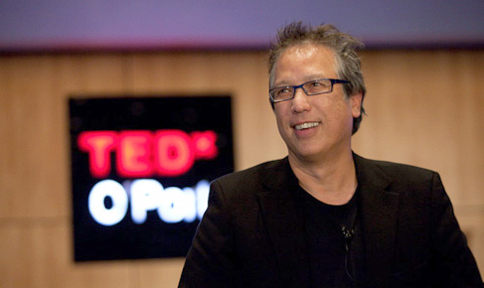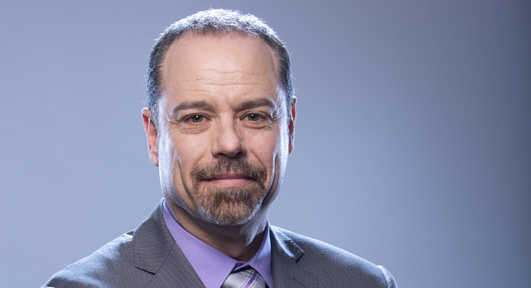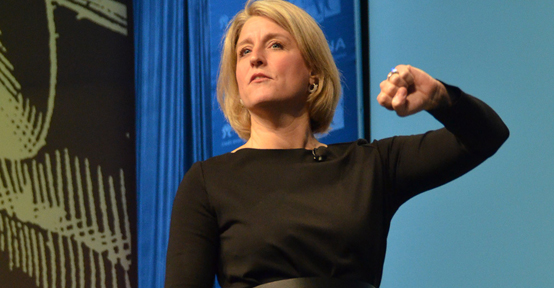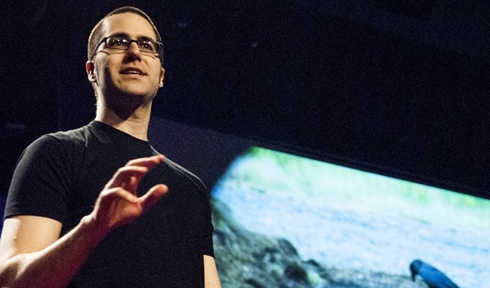1. Top Down
2. Bottom Up
3. Outside In
4. Inside Out
1. TOP DOWN: It is essential that the leaders of your organization play a "culture-enhancing role" far more than they currently do. They may not think they have the time or the experience, but they've got to step up to the plate and really ownthe effort.
The people in the trenches need to know that the head honchos not onlycare about innovation, but are willing to do whatever it takes to establish a company culture conducive to it.
I'm not advocating phony pep talks from the C-Suite. I'm advocating that senior leaders actually lead the effort. I'm advocating that all those wonderful people with three letter acronyms after their name walk the innovation talk... stir the soup... shake and bake... and do everything they can do to martial company resources in whatever way is necessary to transform "business as usual" to "I love this place and I can't wait to get to work." Yes, it's possible.
2. BOTTOM UP: If an organization wants to innovate, it will need to get everyone into the act. Not just senior leaders. Not just R&D. Everyone. Ideas -- the fuzzy front end of innovation -- can come from anywhere, anytime. When an organization really GETS this and finds new ways to tap the collective brainpower of the workforce, the culture starts changing for the better. People become more proactive. More energized. More passionate about their work.
Indeed, it could easily be said that the democratization of the workplace is one of the most important social movements of the 21st century. As power and decision-making trickle down, creative output ratchets up. People become self-organizing, self-directed and, on a really good day, selflessly committed to being a force for positive change.
3. OUTSIDE IN: Establishing a culture of innovation is only meaningful if the fruits of the effort yield the kind of results that are valued by your customers. Otherwise, the effort to "change the culture" will turn into some kind of weird, solipsistic ritual that will have no impact on the people you are serving.
Do you know who your customers are? Do you know what they want? Do you have any kind of process in place to track changing market conditions, demographics, and emerging trends? Have you figured out how to get real feedback and input from your customers -- how toinclude them in your ideation process?
4. INSIDE OUT: Ah... now we're really getting down to it. If you want a culture of innovation, you will need to find a way to unleash the passion, fascination, and inspiration of your workforce.
Not by dangling carrots and sticks (read Dan Pink's new book, Drive, if you doubt me), but by finding a way to activate the innate desire for meaning, enjoyment, and success that is buried deep within the bones of every single person who shows up for work day after day.
Organizations don't innovate. People do.

If you can find a way to unlock the primal mojo of your workforce, you won't need to manage as much as you do. You won't need to rely so heavily on incentive plans, performance reviews, pep talks, frowns, and punishment.
That stuff only exists because your workforce is disengaged.
But when people are on fire with purpose, in touch with their own authentic desire to create, a culture of innovation will naturally evolve.
A big thank you to Val Vadeboncoeur, Tim Moore, Barry Gruenberg, Paul Roth, and Michael Pergola for their humongous collaboration, insight, creativity, and perseverance on this topic.
|
AUTHOR
President and co-founder of Idea Champions, Mitch Ditkoff is a consultant specializing in creative thinking, innovation, team development, leadership, and the power of storytelling in the workplace. Since 1987, he has been facilitating workshops and meetings for “just about every industry on planet earth.” He’s the creative guru who has helped AT&T, GE, Chubb, Merck, A&E Television, General Mills, AtlantiCare, and many other organizations take their innovation capacity to the… ... more
Other Posts by Mitchell Ditkoff
Mitch Ditkoff is the Co-Founder and President of Idea Champions, an innovation consulting and training company headquartered in Woodstock, NY. In addition to being the author of the two above-mention'...' more...
Here's a useful tip for you the next time you find yourself standing in front of a group of people and about to facilitate a meeting of any kind.
Before you begin, ask people to give you permission'...' more...
Here is a fantastic infographic on storytelling in business.
'...' more...
MORE Technology / Innovation BLOGS
Innovation keynote speaker and expert, Dr. AnnMarie Thomas works (and plays) to empower, support, and inspire today's innovators, engineers, and inventors, as well as those of tomorrow. A seasoned ma'...' more...
Kevin Surace is a well known Silicon Valley entrepreneur, disruptive innovator and innovation keynote speaker, who had been awarded Inc Magazine's Entrepreneur of the Year, listed as one of the top 15'...' more...
Innovation keynote speaker, Michael Perman helps teams crack the innovation paradox to generate actionable ideas, breakthrough products, and revolutionary customer experiences. The founder of C’EST'...' more...
Described by The Daily Telegraph as “America's most influential trend spotter," Michael Tchong has been at the forefront of internet, social media and computer innovation throughout his career. His '...' more...
A highly respected agent of change, innovation speaker Jay Samit is globally renowned for his expert advice on launching products, building successful businesses, and transforming careers and entire i'...' more...
Founder & CEO of innovation firm futurethink Lisa Bodell is the bestselling author of Kill the Company, and her latest Why Simple Wins. A leader on simplifying innovation and change management, Lisa i'...' more...
Life-long expert on the use of hacking and innovation to create and solve social systems and industries, Josh Klein has served as a consultant on innovation and cyber security to the CIA, FBI, NSA, an'...' more...
© 2025 CORE SPEAKERS AGENCY. All rights reserved.
|






